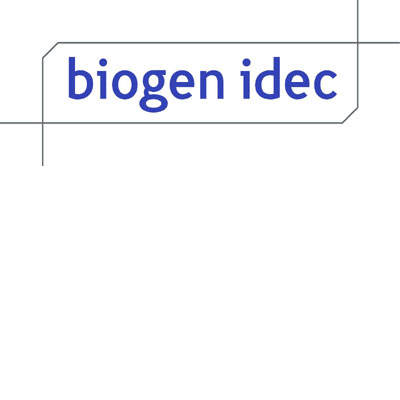Tecfidera® (dimethyl fumarate) approved in the European Union as a first-line oral treatment for multiple sclerosis
Posted: 3 February 2014 | | No comments yet
Biogen Idec to begin launching TECFIDERA in initial EU Countries in the coming weeks…


TECFIDERA® (dimethyl fumarate) has been approved by the European Commission (EC) as a first-line oral treatment for people with relapsing-remitting multiple sclerosis (RRMS), the most common form of multiple sclerosis (MS). Biogen Idec (NASDAQ: BIIB) will begin to introduce TECFIDERA in initial European Union (EU) countries in the coming weeks.
TECFIDERA was first approved in the United States in March 2013 and became the country’s number one prescribed oral therapy for relapsing forms of MS after six months.1 TECFIDERA was also approved in Canada and in Australia in 2013.
“TECFIDERA exemplifies our commitment to deliver innovative therapies that help people living with serious diseases,” said George A. Scangos, Ph.D., chief executive officer of Biogen Idec. “We already have seen TECFIDERA’s significant impact on transforming the standard of care for MS where it is available and are excited to quickly bring its benefits to patients in the EU as well.”
The EC approval is based on a robust clinical development program that included two global Phase 3 clinical trials, DEFINE and CONFIRM, as well as an ongoing extension study, ENDORSE, in which some patients have been followed for up to six and a half years. TECFIDERA has been clinically shown to significantly reduce important measures of disease activity, including relapses and the development of brain lesions, as well as to slow disability progression, while demonstrating a favorable safety and tolerability profile.
“As a physician, I am all too familiar with the challenges my patients experience while managing their MS. TECFIDERA may lower this burden for many because it is an oral therapy that has been proven to lessen disease activity effectively while maintaining a favorable safety profile,” said Ralf Gold, M.D., professor and chair of the Department of Neurology, St. Josef-Hospital/Ruhr-University Bochum and lead investigator of DEFINE. “Moreover, the positive experience we have had with TECFIDERA throughout its extensive clinical program gives me confidence about the benefits this oral therapy may offer my patients in the EU.”
TECFIDERA is the fourth therapy Biogen Idec offers to people living with MS.
About the TECFIDERA Phase 3 Clinical Program
The efficacy and safety of TECFIDERA were evaluated in two large, global Phase 3 clinical studies, DEFINE and CONFIRM.
In DEFINE, TECFIDERA administered twice daily significantly reduced the proportion of patients who relapsed by 49 percent (p<0.0001), the annualized relapse rate (ARR) by 53 percent (p<0.0001), and the risk of 12-week confirmed disability progression, as measured by the Expanded Disability Status Scale (EDSS), by 38 percent (p=0.0050) compared to placebo at two years. In CONFIRM, which also included an active reference comparator of glatiramer acetate (GA) compared to placebo, twice-daily TECFIDERA significantly reduced ARR by 44 percent (p<0.0001) and the proportion of patients who relapsed by 34 percent (p=0.0020) compared to placebo at two years. While not statistically significant, TECFIDERA showed a 21 percent reduction in the risk of 12-week confirmed disability progression in CONFIRM compared to placebo at two years.
In both DEFINE and CONFIRM,TECFIDERA also significantly reduced lesions in the brain compared to placebo, as measured by magnetic resonance imaging (MRI). Glatiramer acetate data in CONFIRM, compared to placebo, was consistent with EU product labeling.
The most common adverse events (AEs) associated with TECFIDERA were flushing and gastrointestinal (GI) events (i.e., diarrhea, nausea, abdominal pain, upper abdominal pain). Overall, clinical trial discontinuations due to flushing (3%) and GI events (4%) were low.
Mean lymphocyte counts decreased during the first year of treatment and then remained stable. There were no opportunistic infections in TECFIDERA-treated patients and no overall increased risk of serious infections.
References
- Based on number of prescriptions from IMS NPA™ Weekly Data (27 September 2013) and Biogen Idec data on file.




